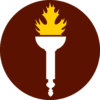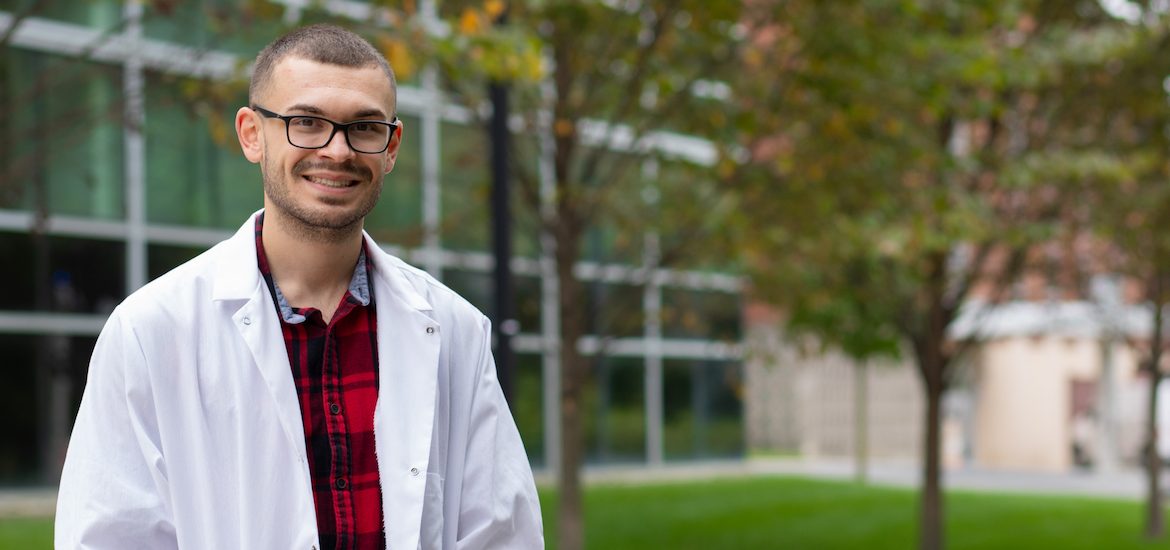A Dive Into the Physics Major at Rowan University With a Graduating Senior
Meet Nicholas Kurth, a senior from Deptford, NJ (Gloucester County) graduating this December, majoring in physics, minoring in astronomy & mathematics, and a CUGS (certificate of undergraduate study) in computer science.
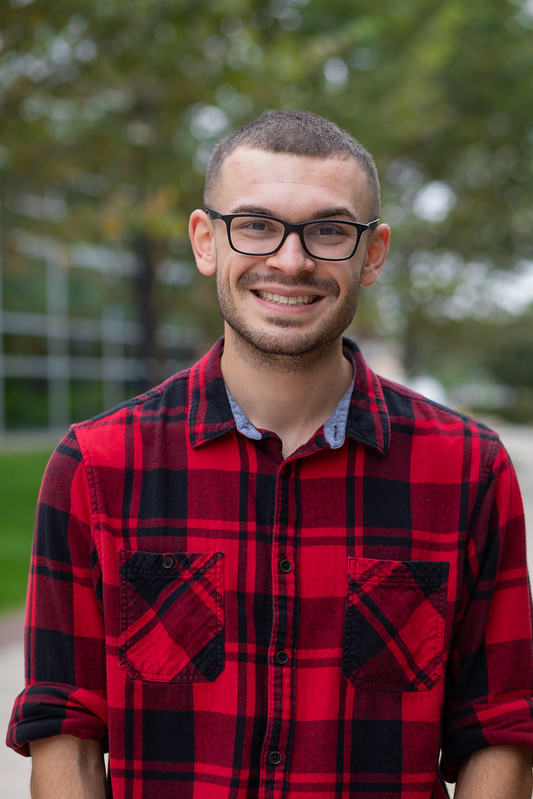
Can you describe what the physics major is like?
“The physics major is getting down to the exact understanding of why nature operates the way it does. So it goes down to the most basic operations that nature has, which is just forces and energies. We want to understand how and why things that we observe in the universe occur down to these things. It’s a little bit of a puzzle as well as a mix with real world applications. That’s why I chose this major.”
What research opportunities have been available to you?
“There have been five or six research opportunities that I have been fortunate enough to partake in. It started with a summer with Dr. Eduardo Flores doing theoretical work on the Casimir Force and discrete space. He was able to sit down explain this and I was able to provide really good work and help him toward this research goal of his that spun off into doing research into dark matter. Then I went into this experimental work, then took a break and did this computational work through Louisiana State University. I went on to continue with Dr. Nathaniel Nucci for two semesters, took another break, went to Switzerland for CERN (European Organization for Nuclear Research), and then came back and continued with Dr. Nucci.”
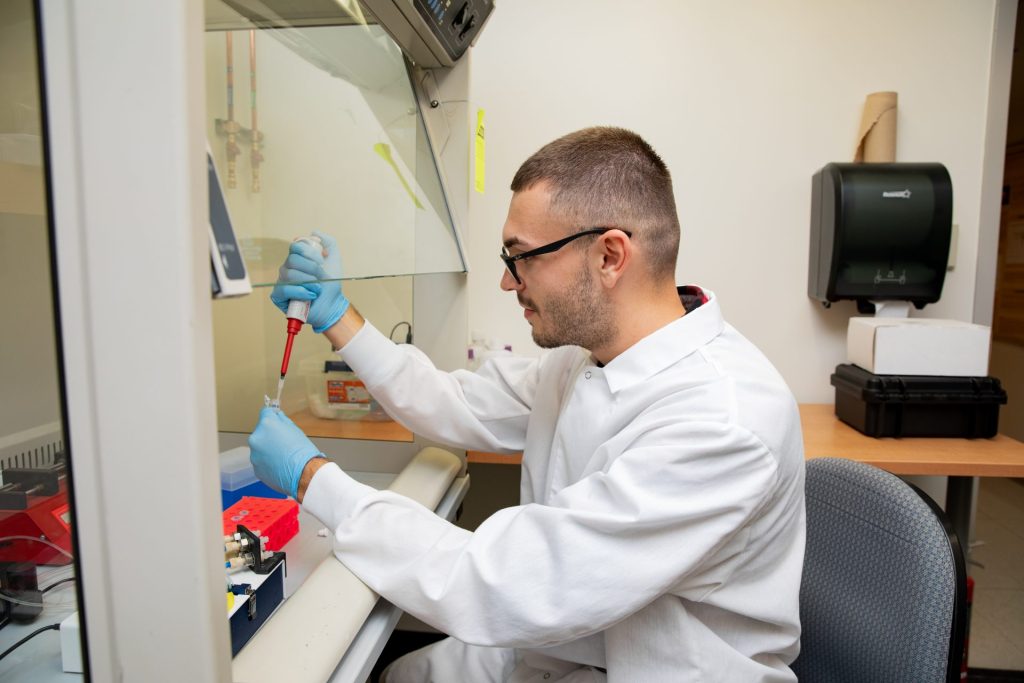
Tell us more about your CERN (European Organization for Nuclear Research) experience.
“I knew about this opportunity at CERN for over a year before I applied because when I was applying to LSU to go do research work for them, I saw a pop up and knew I didn’t have enough experience yet. I wanted to hold out just a little bit longer, but fast forward to this year I was like, nothing’s holding me back. I wanted to do this, so I pursued it. Money is provided and supported by NSF, so I applied and wanted to see what would happen. All things considered, I remember getting an email one day, asking if they could schedule a call with me. It did not feel like an interview at all because by the end they were like, you’re accepted, and they sent me information as soon as possible. I was a part of a group that focuses on muon trackers, a specific type known as gas electron multipliers. This was all in part for the Compact Muon Solenoid experiment that they hosted at CERN.
“Being at CERN, I was surrounded by other people who are like minded, where everyone is passionate about physics and research. I was surrounded by everyone across the world, because CERN is a global organization and science community. I had students from Scotland, Serbia, Italy in a part of my lab. I was one of three Americans in that group. Everyone else was from either France, South Korea or Italy. So collaborating with all of them and sharing ideas, you really get to bounce off ideas for inspiration and influence of new research ideas. It reminded me that I belong here. I have the smarts, the skills, the confidence to be here and do the work with everyone.”
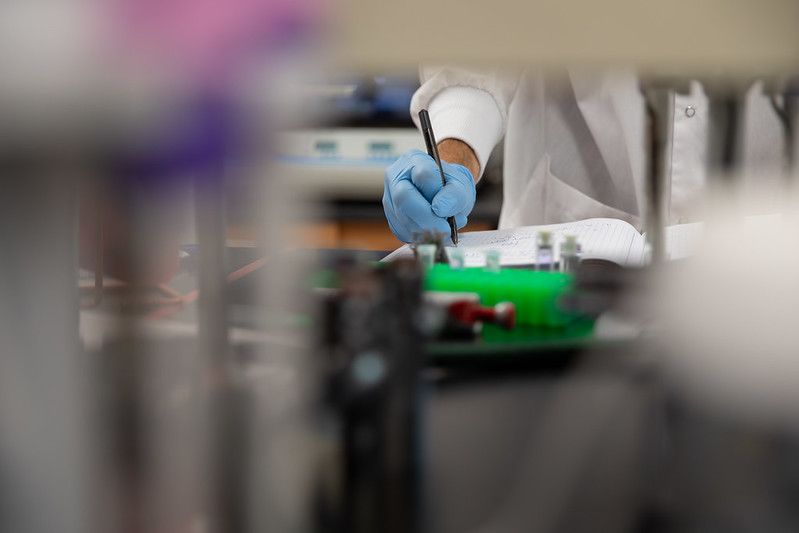
Who are your biggest mentors here at Rowan?
“Two of the biggest mentors I have are Dr. Flores and Dr. Nucci. I was a freshman when I had Dr. Flores for my entire first year of college. I was stuck home in my room in the basement. [Editor note: Due to COVID-19.] Then I noticed that he was going to offer undergraduate students an opportunity to do research under the summer undergraduate research program that is held by Rowan. He was going to take on students and have a group. I looked him up and I saw what he was doing. I wanted to just get into research, try it out and see how it would work out. He figured he’ll give a chance to a freshman and now I’m here. Even though it’s theoretical physics and physics research, I still got to learn what research is, how it proceeds, realize it is slow and it tests your patience. My other mentor is Dr. Nucci, who I continue doing research with, and he really helped with experimental skills and thinking outside the box. He was an advisor and a mentor too; he built my confidence up so much. That’s how I was so fortunate to participate in these opportunities elsewhere. I have the skills to be like ‘I am ready for graduate school and could do the research and work.’ I’m just so thankful for both of them for giving me that opportunity.”
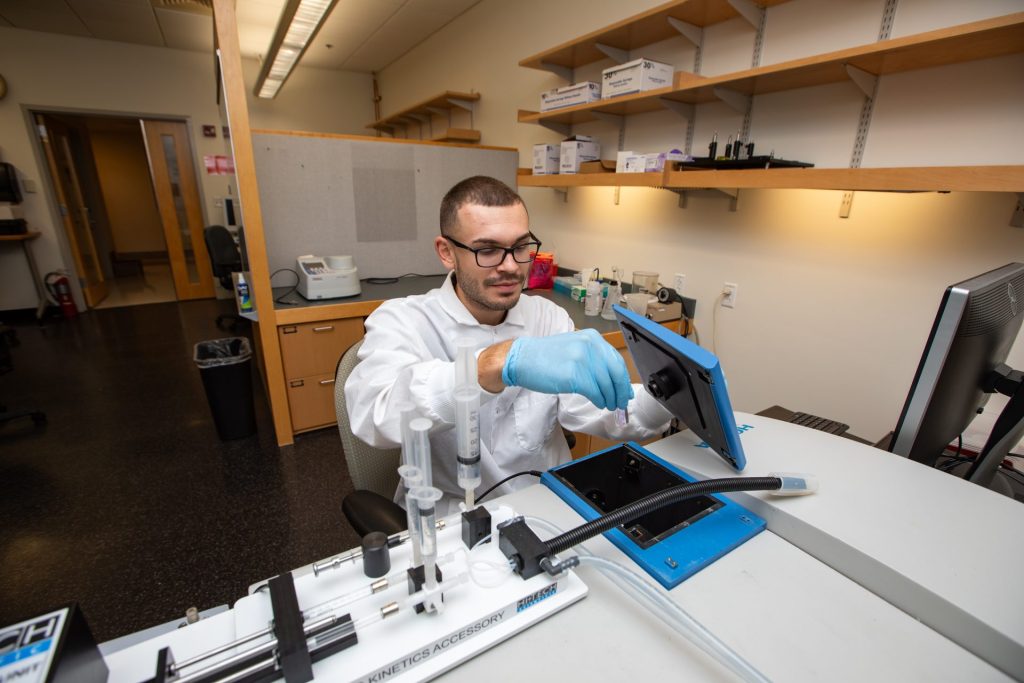
What is your classroom experience like?
“So in class, a lot of times it’s working with group activities, especially when you get to the upper-level physics classes. They’re more difficult, but they’re also much more fun because in introductory courses, you just glance over things. That doesn’t work in physics; we need to get down to why things operate the way they do without any exceptions. That’s why in the upper levels you get down to those nitty gritty details and then you understand why these things are the way it is. In order to understand that, a lot of times you do collaborative work together, especially when it comes to homework and projects.”
What resources are available within the department for physics majors?
“Two things come into mind. It’s open and welcoming, where almost 99% of the time the faculty have an open door policy. You could just walk in and talk to them maybe about science, research news, or if you just want to talk. Our greatest strength is the level of openness and welcoming.”
What can you do with a physics degree?
“My parents still don’t fully understand what I can do with my degree. I’m always getting asked by my grandparents, family and friends what I plan on doing with this degree. That’s honestly not something I blame them for. With a physics degree, it is essentially the liberal arts of the sciences because I could be in any field now I want. There’s biophysical research which is more geared toward understanding biology. I could do chemistry work because I understand basics atoms and interactions. I could do engineering because it is just applied physics and mathematics. When it comes to me and what I want to do with physics, I want to continue by going to graduate school, becoming a professor and just continue researching. It makes me happy, brings me joy, and it is the job that I like. I want to be able to teach physics in my future, whether it is at a big school or small school. I want to share my passion with others.”
Why did you decide to come to Rowan?
“I knew that I would have the opportunities to blossom and be the best that I can be. Is it the biggest school? No, it’s a medium-sized school. I knew that physics is even smaller and I knew that I would be able to have great relationships with my advisors and professors to get involved with research right away.”
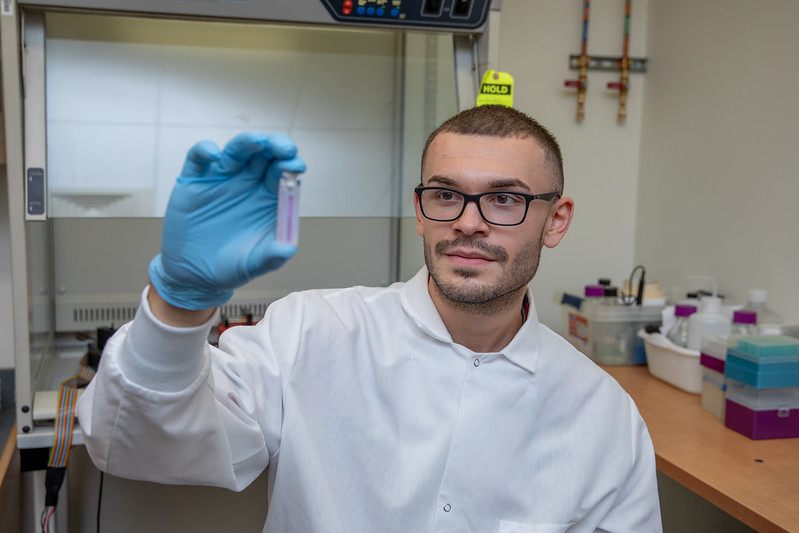
Like what you see?
Written by: Jordyn Dauter, junior double major in dance & elementary education
